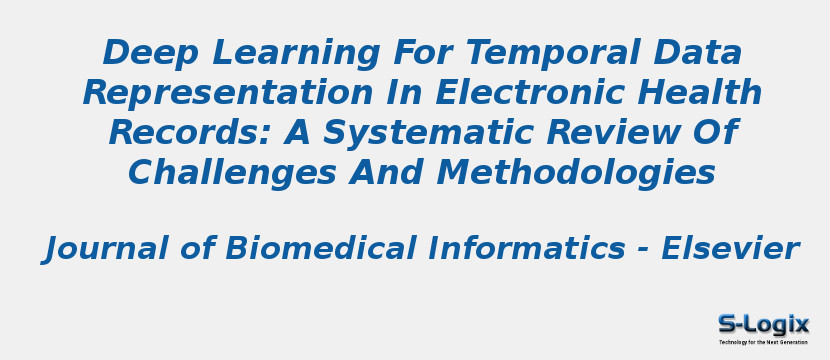Research Area: Machine Learning
Temporal electronic health records (EHRs) contain a wealth of information for secondary uses, such as clinical events prediction and chronic disease management. However, challenges exist for temporal data representation. We therefore sought to identify these challenges and evaluate novel methodologies for addressing them through a systematic examination of deep learning solutions.We searched five databases (PubMed, Embase, the Institute of Electrical and Electronics Engineers [IEEE] Xplore Digital Library, the Association for Computing Machinery [ACM] Digital Library, and Web of Science) complemented with hand-searching in several prestigious computer science conference proceedings. We sought articles that reported deep learning methodologies on temporal data representation in structured EHR data from January 1, 2010, to August 30, 2020. We summarized and analyzed the selected articles from three perspectives: nature of time series, methodology, and model implementation.We included 98 articles related to temporal data representation using deep learning. Four major challenges were identified, including data irregularity, heterogeneity, sparsity, and model opacity. We then studied how deep learning techniques were applied to address these challenges. Finally, we discuss some open challenges arising from deep learning.Temporal EHR data present several major challenges for clinical prediction modeling and data utilization. To some extent, current deep learning solutions can address these challenges. Future studies may consider designing comprehensive and integrated solutions. Moreover, researchers should incorporate clinical domain knowledge into study designs and enhance model interpretability to facilitate clinical implementation.
Keywords:
Author(s) Name: Feng Xie, Han Yuan, Yilin Ning, Marcus Eng Hock Ong, Mengling Feng, Wynne Hsu, Bibhas Chakraborty, Nan Liu
Journal name: Journal of Biomedical Informatics
Conferrence name:
Publisher name: Elsevier
DOI: 10.1016/j.jbi.2021.103980
Volume Information: Volume 126, February 2022, 103980
